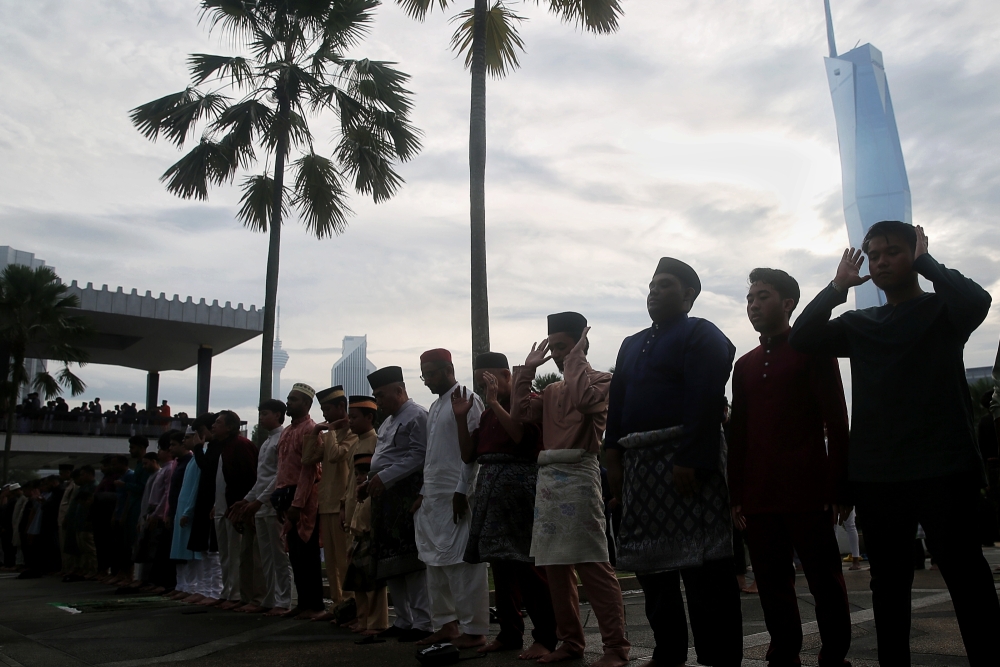KUALA LUMPUR, July 17 — Last week, Prime Minister Datuk Seri Anwar Ibrahim has conceded that Putrajaya is still deliberating the Mufti (Federal Territories) Bill 2024, following disagreement from parts of the Muslim community.
Anwar also said that he would defer to the expertise of Muslim scholars on the matter, while guaranteeing that the position of the Sunni sect in Malaysia remains unchallenged.
So, what is the Bill about?
The Bill aims to define the role and responsibilities of the mufti in the Federal Territories, which include Kuala Lumpur, Labuan, and Putrajaya. To help understand this, the following points need to be made:
- In Islamic teachings, a “mufti” is an Islamic jurist who is qualified to issue a “fatwa”.
- A “fatwa” is a learned opinion on a point of Islamic law. In general, a fatwa is non-binding for Muslims.
- However, in Malaysia, a mufti also usually handles the Islamic administration in their respective state as Islamic affairs comes under the jurisdiction of the Malay Rulers.
- Additionally, a fatwa from a state’s mufti can be enforced on Muslims there if it is gazetted into law.
This Bill would outline a mufti’s duties in the FT that, among others, include:
- Advising the King on Shariah law (Section 4)
- Issuing fatwas (Section 10)
- Determining the Qibla, or the direction for prayer (Section 17)
Other important points include:
- A court can require the mufti to provide a written opinion on Shariah law if needed, but it would not be binding. A mufti cannot be called to testify in any court. (Section 15)
- The mufti is protected from any legal proceedings if their actions were done “in good faith” and “with a reasonable belief” that they were necessary to implement any provisions in the Act. (Section 32)
It also proposes the formation of several committees to oversee fatwas (Section 7), Islamic astronomy (Section 19), lunar sightings (Section 22), and Islamic religious education (Section 26).
On July 2, the Bill was tabled for its first reading in the Dewan Rakyat by the Minister in the Prime Minister’s Department (Religious Affairs) Datuk Mohd Na’im Mokhtar.

Points of contentions
Some provisions within the Bill have caused controversy, leading to resistance among some religious scholars and politicians.
The controversy centres on the requirements to be a mufti and issue fatwas in Sections 3(2) and 3(4), which include adherence to the:
- Sunni denomination
- Shafie school of jurisprudence
- Ash'arism and Maturidism schools of theology
- Teachings of Imam al-Ghazali and Imam Junaid in Sufism
What do these mean?
Sunni — The Sunni are the biggest branch in Islam, comprising around nine in 10 Muslims worldwide. The requirement would effectively exclude other denominations such as Shia and Ahmadis, which are generally regarded as either heretic or deviant locally.
Shafie — This is one of the four schools of jurisprudence in Sunni Islam, also called “mazhab”, which influence Shariah laws. The other three are Hanafi, Maliki and Hanbali, although none is opposed to any other. The Bill states that a fatwa can also refer to other schools besides Shafie if needed.
Ash'arism and Maturidism — There are several schools of theology in Sunni Islam, with the other popular one being Atharism. Their opinions differ on matters such as rationalism, free will, and strictness in interpreting religious texts.
Imam al-Ghazali and Imam Junaid — There are many prolific teachers of Sufism, which concerns the spiritual aspects of Islam. The two were respected Persian polymaths educated in Baghdad, with the former also known as Algazel in the Western world.

Where is the resistance coming from?
Perlis Mufti Datuk Mohd Asri Zainul Abidin was among the biggest critics of the restrictions, calling for Putrajaya to represent the diversity within the public and the religion.
On his Facebook page on July 2, Asri warned that “rigidity would lead to fanaticism and hatred between the people and the government”.
“It is not appropriate for the Government to pass any legislation or enactment that restricts the thinking of the people, seizes freedom of thought and academic freedom, especially in the name of religion. The Madani Government should adopt a ‘civilised’ approach or bring broad and open-minded civilization thinking.”
He was also supported by his state’s Ruler, Tuanku Syed Sirajuddin, who said that he did not consent to the Conference of Rulers being named as a supporter of the Bill. He has since released a royal statement backing Asri’s arguments.
Tan Sri Abdul Hadi Awang, the president of Islamist party PAS, has also called for the Bill to reviewed, criticising the need for an “official” Islamic strain. He was quoted by PAS' news HarakahDaily telling the media at the sidelines of Kelantan MBI International Conference 024 on July 10:
“The government cannot set such a stipulation because [Imam Malik, Imam Shafie, Imam Hanafi or Imam Hanbali] had never issued any directive for their thoughts to be used as a guide for a country. They only mentioned that Islam should be the religion of the state.”
However, nine state muftis have expressed their support so far: Federal Territories, Perak, Selangor, Sabah, Pahang, Kedah, Negeri Sembilan, Terengganu, and Melaka.



















